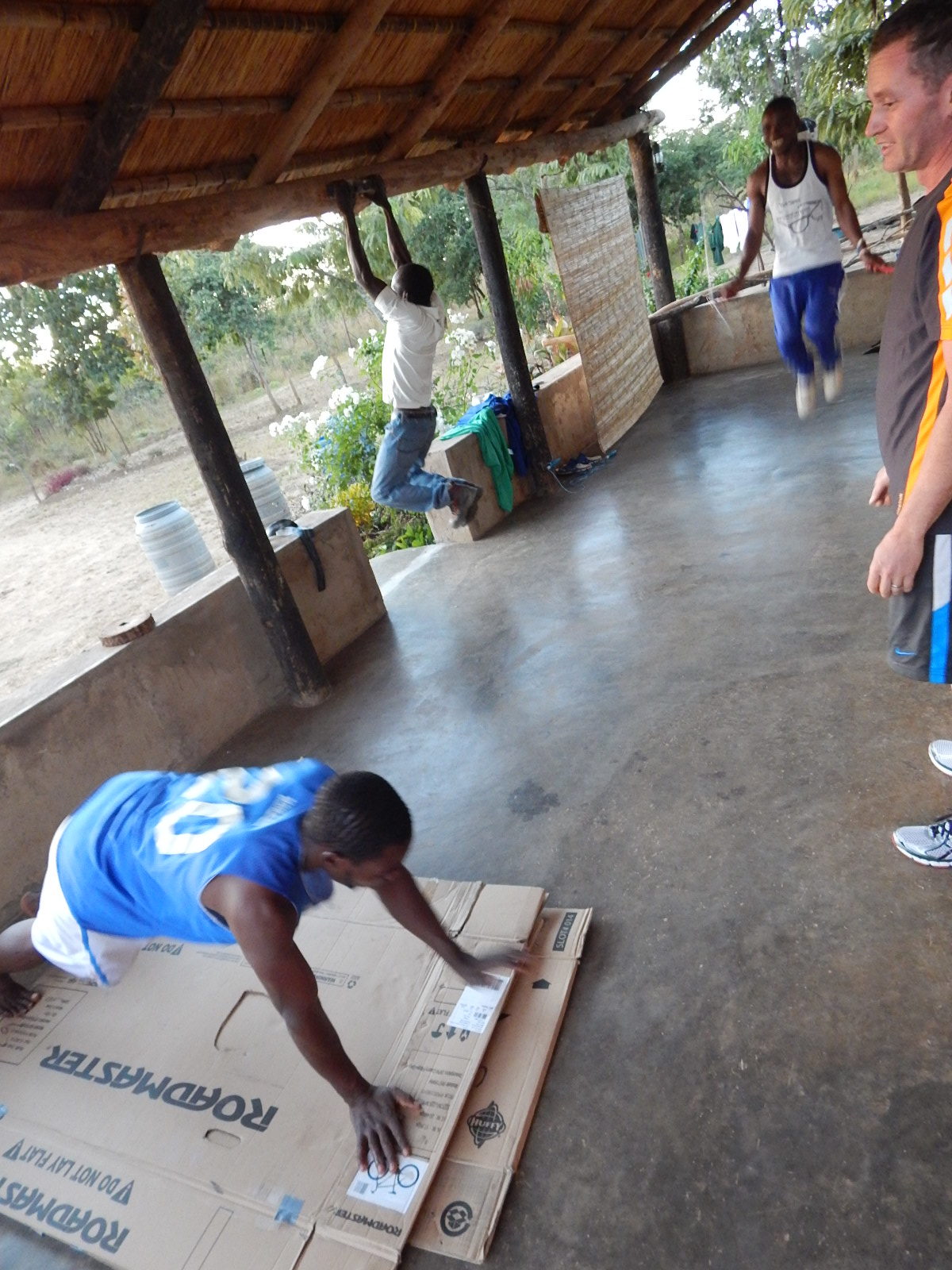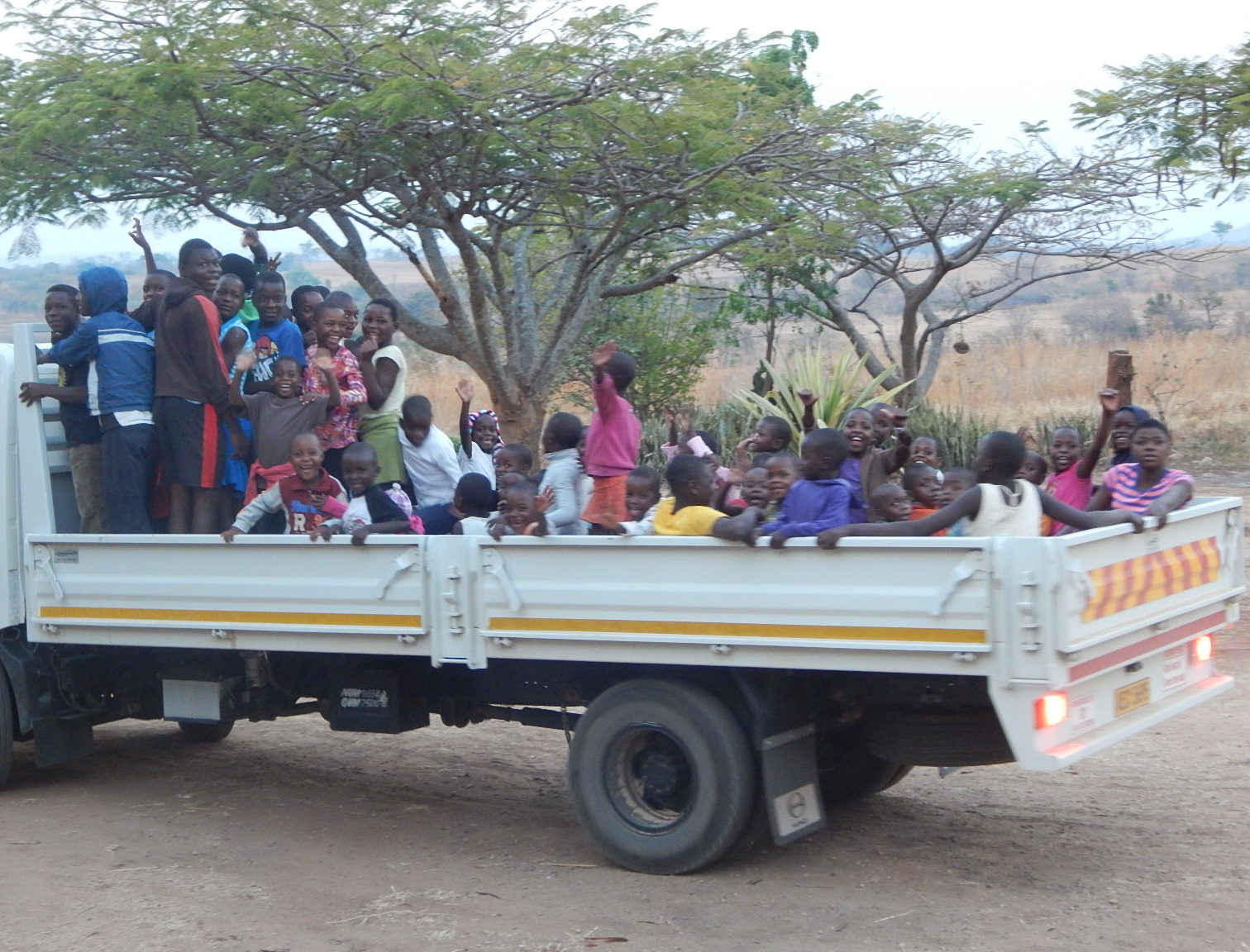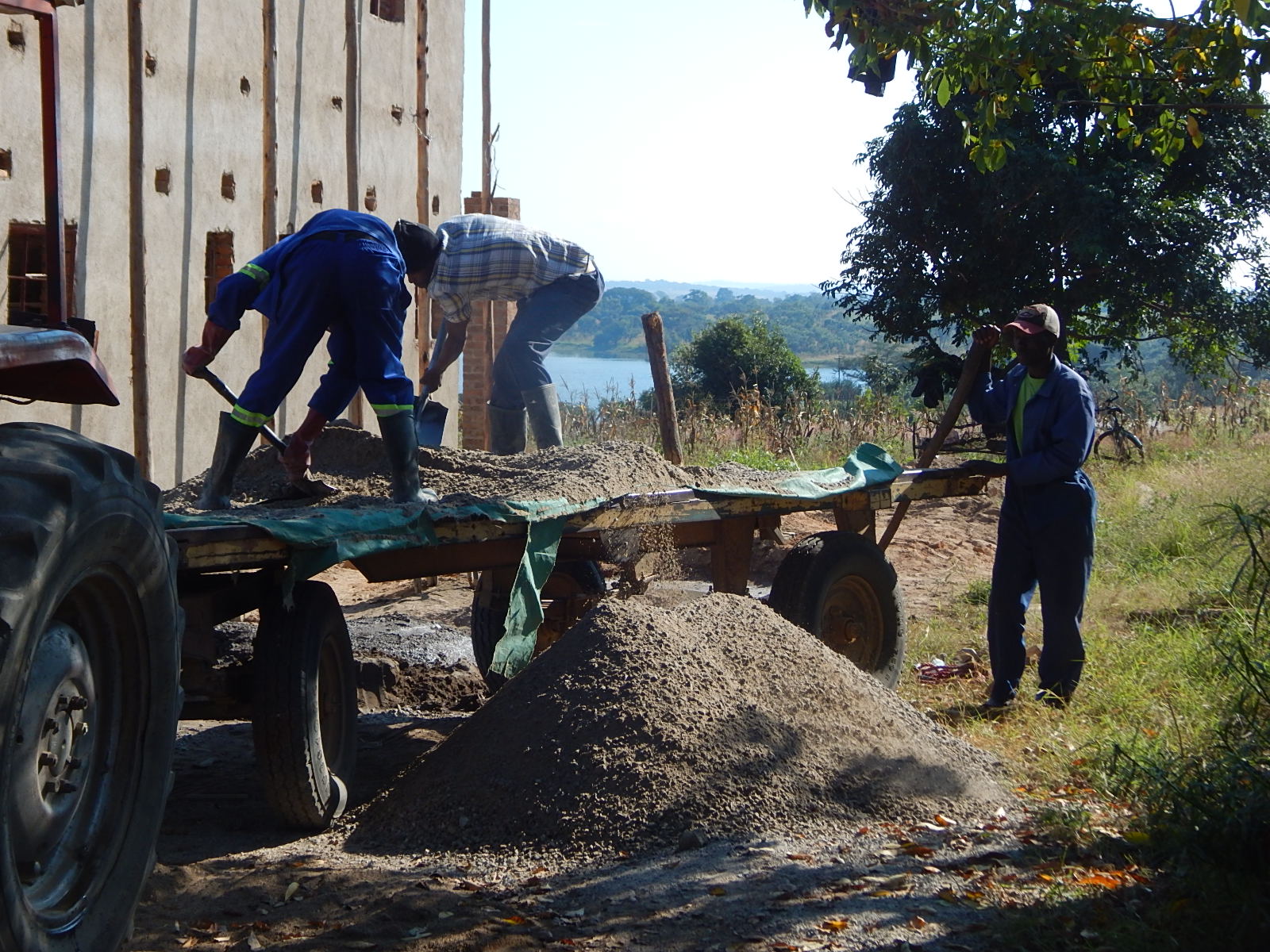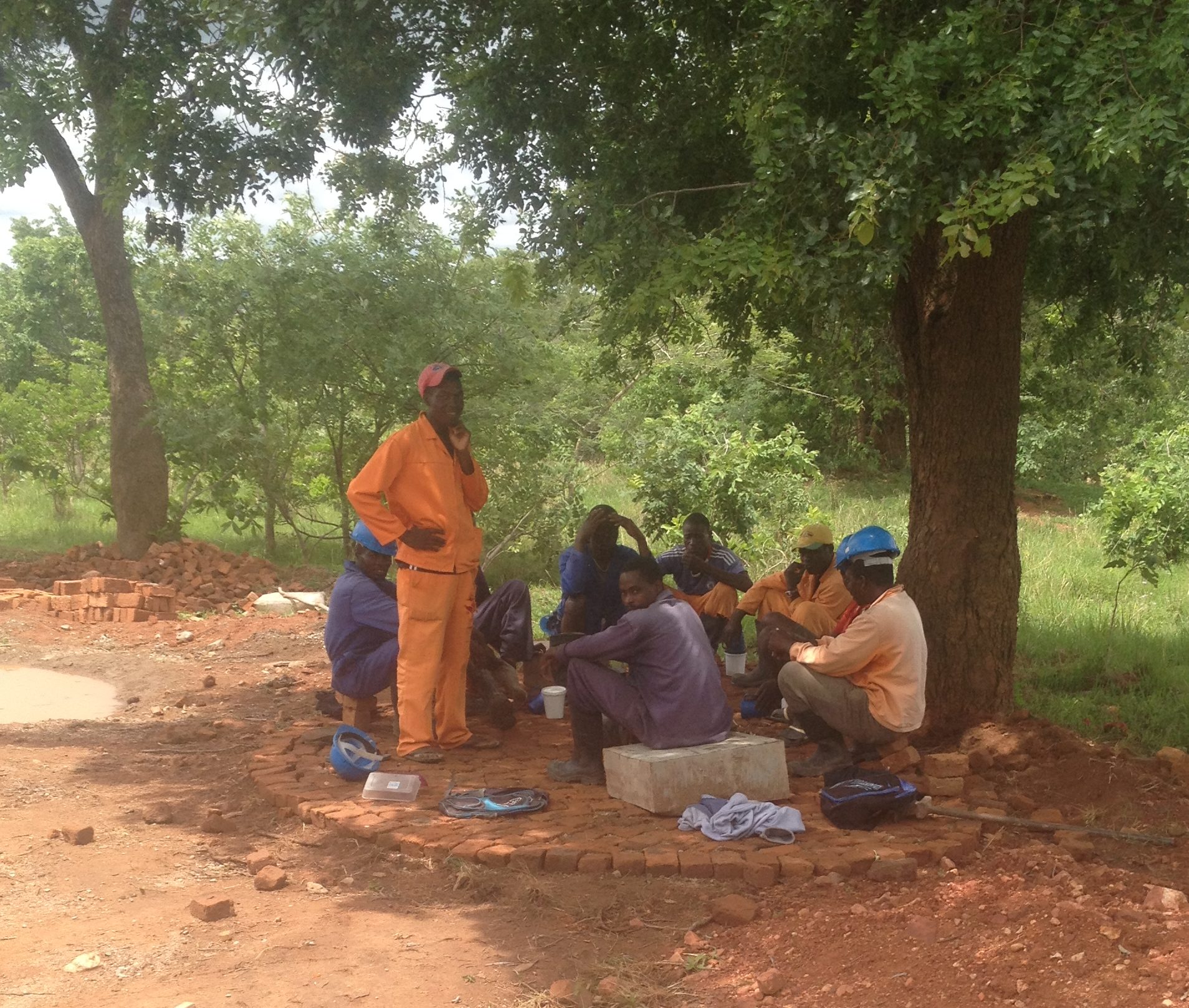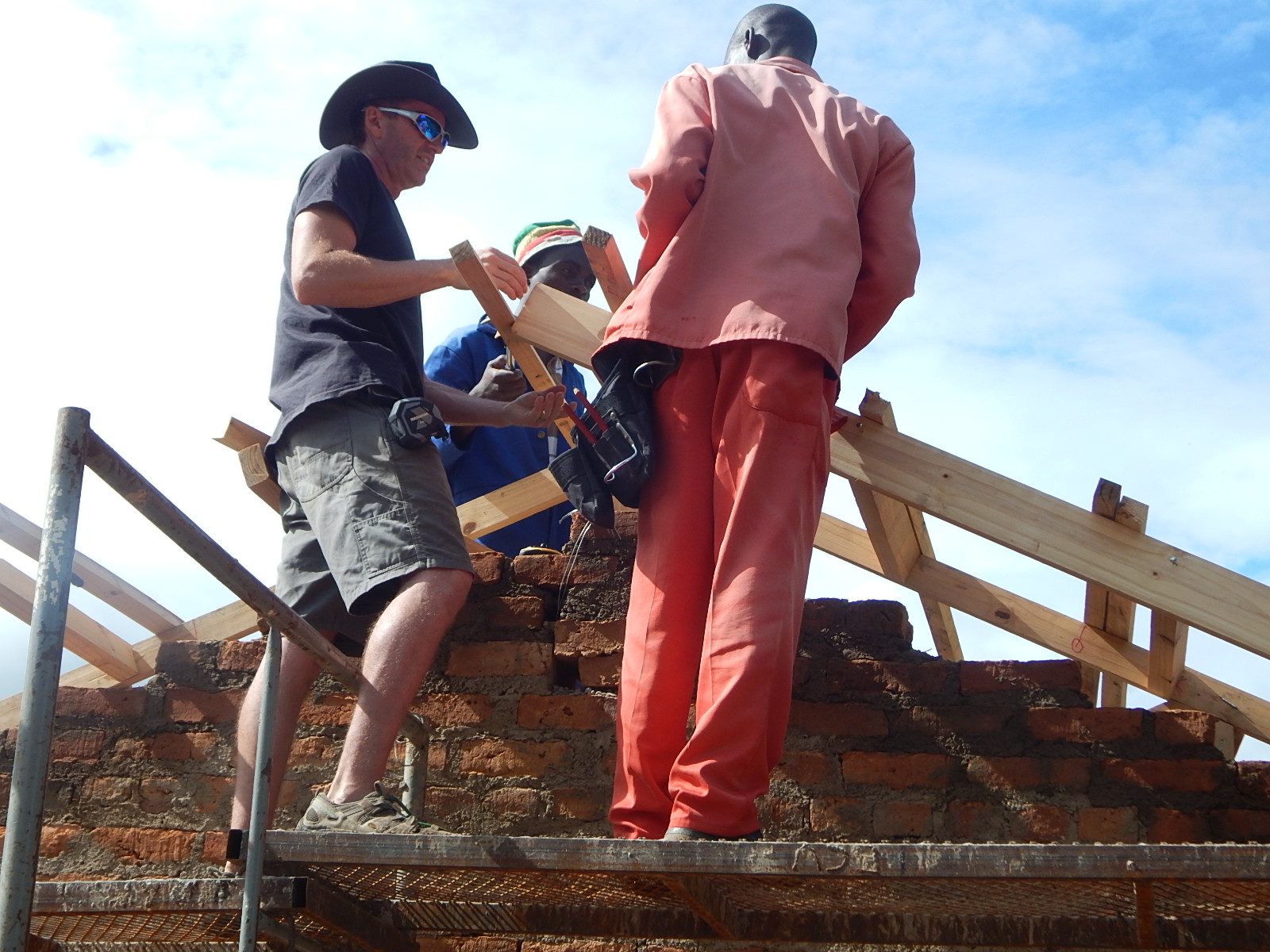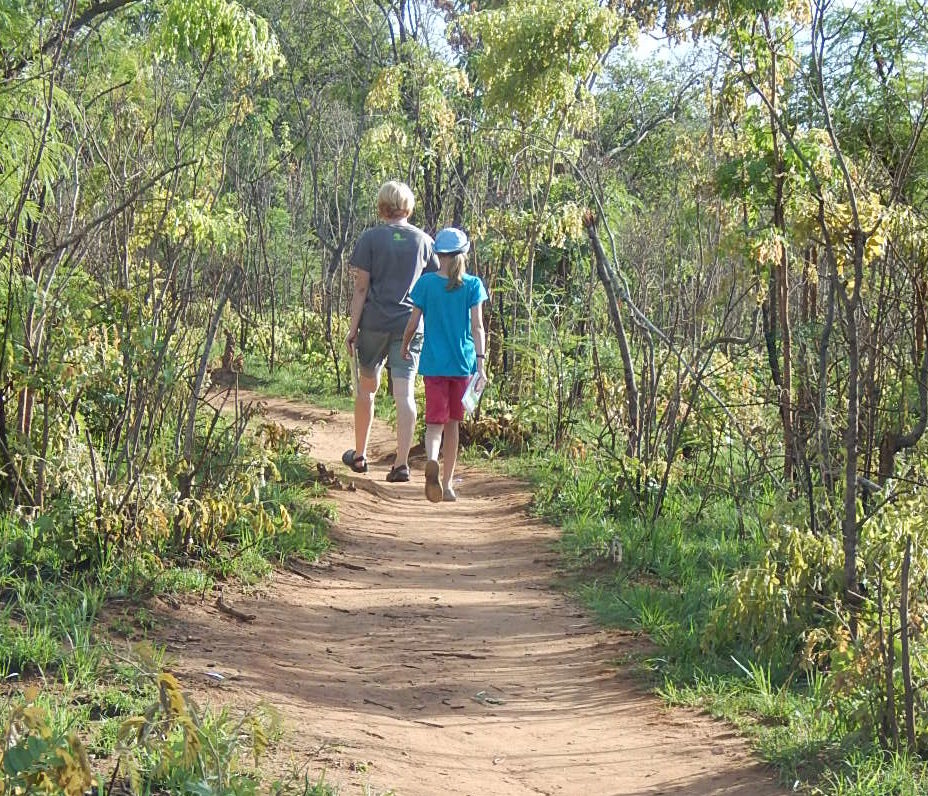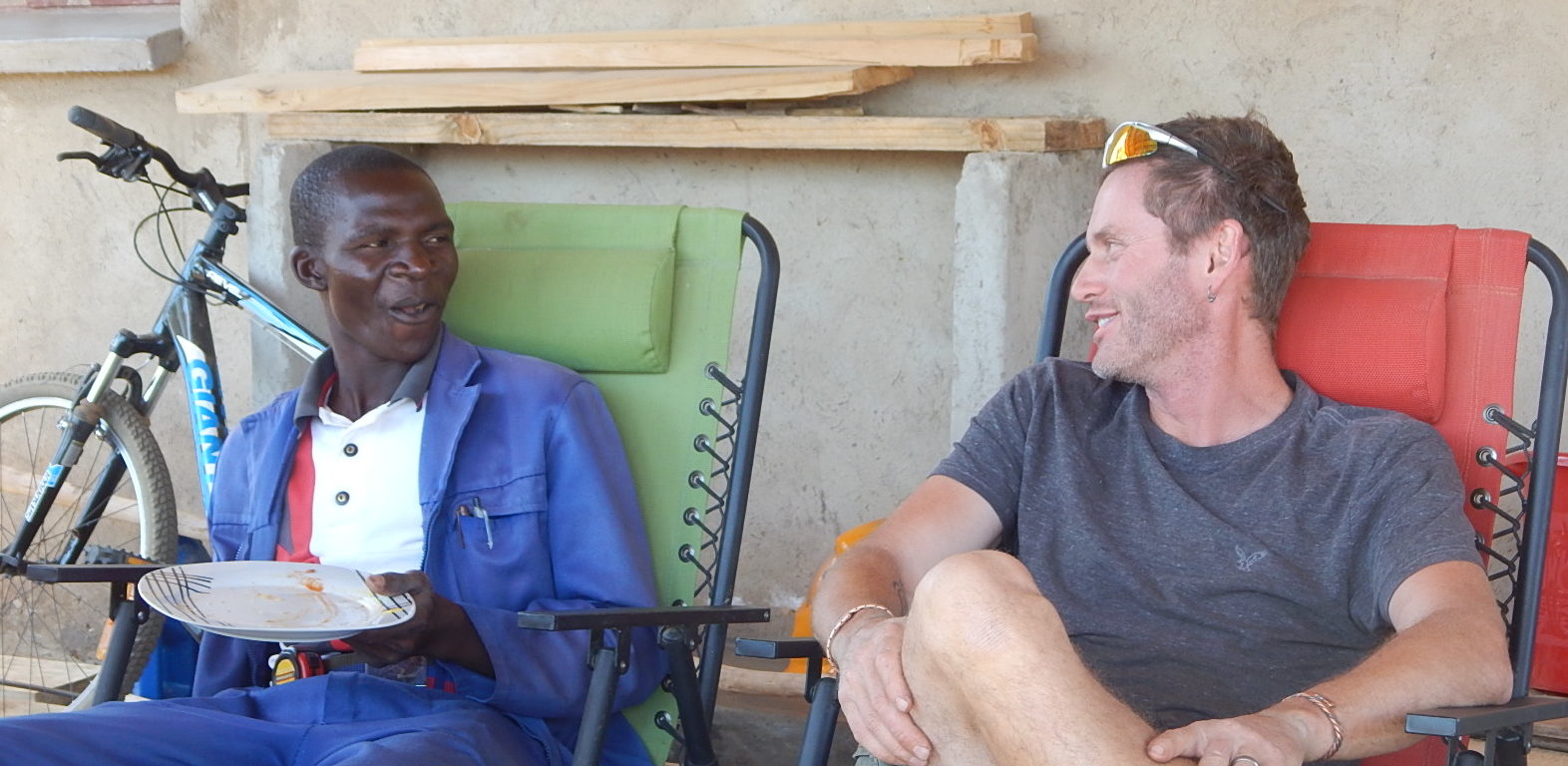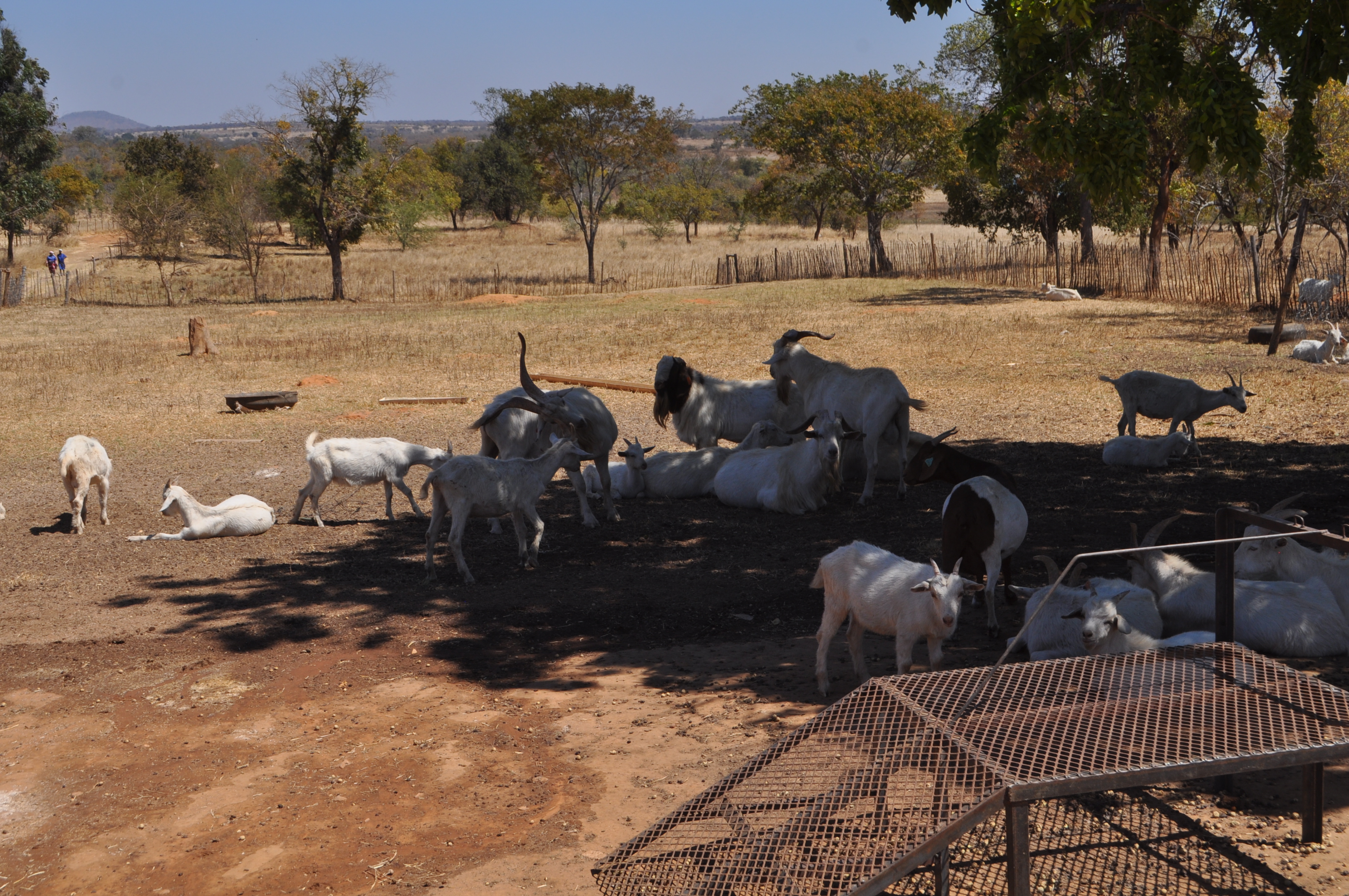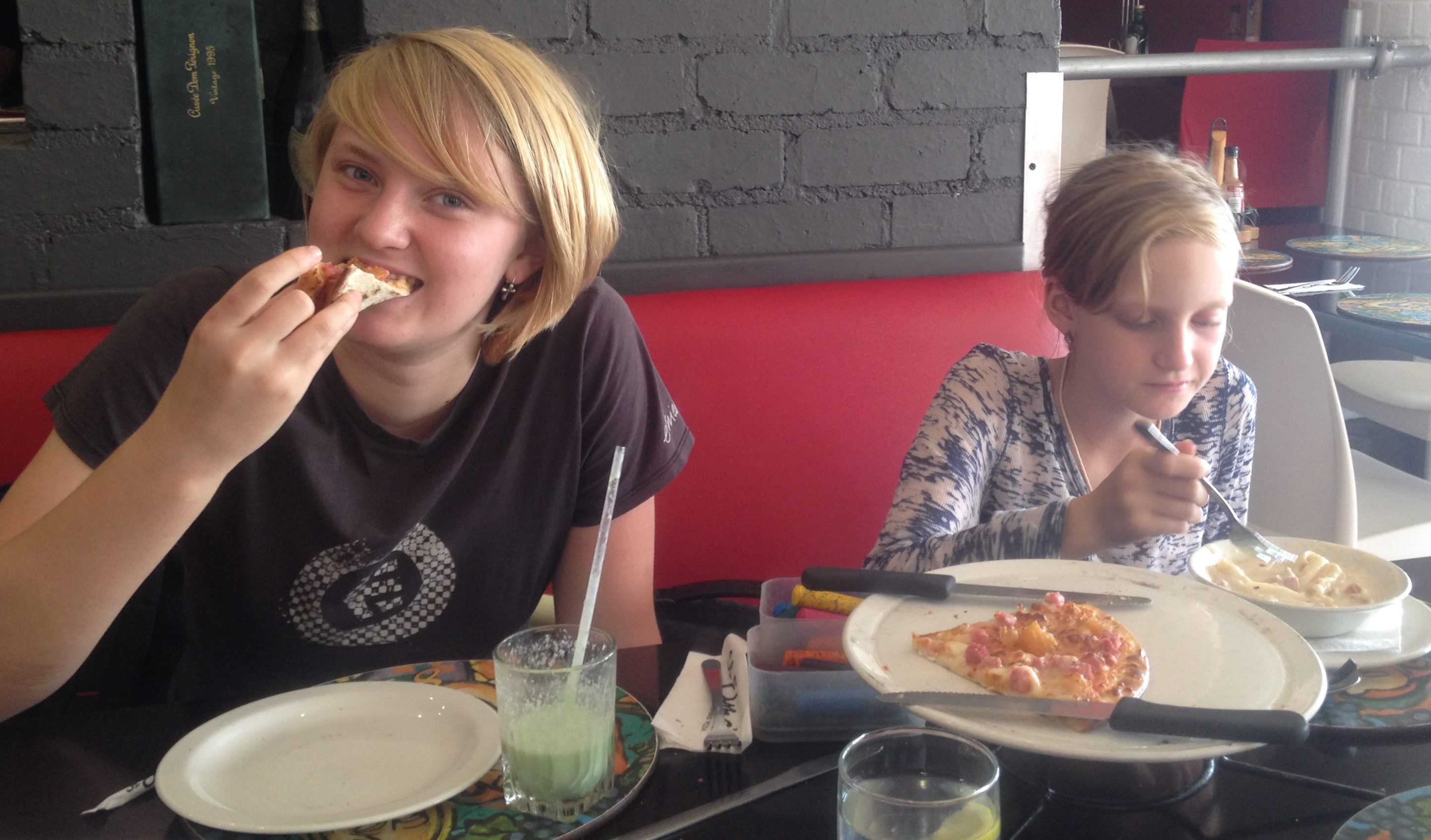
We do our grocery shopping for the month when we go to Harare for our monthly immigration visits. We try to have a detailed shopping list so we don’t forget anything. Usually there are a number of trips to the city in a month from the orphanage and someone can usually pick up something we are missing, but it’s a hard enough trip for people that we don’t like to add to someone else’s already unrealistic errand list. We buy eggs, chicken, beef and vegetables from the Eden farm, but other staples we have to buy in Harare. Our meals in Zimbabwe are much simpler than what we eat in Canada. We eat a lot of vegetables and eggs. Unfortunately we eat a lot of bread too, just because it’s easier to put a peanut butter sandwich together than cook a meal. We eat a restaurant meal once a month on our Harare day, that’s our big treat. Our favourite place to go is St. Elmo’s Pizza, where they make pizza in a wood fired oven.
Lia has always liked to bake and she has taken it up again in Africa. Thankfully we have an oven in the house and can buy the ingredients she needs to make cookies, squares and cakes. We have a Bible study on Tuesday evenings and she always makes an entrance with a plate full of baked treats, which get devoured after the meal. Lia has a loving heart and has really taken to serving the community by making treats for all of us. It is fun to see how much everyone looks forward to seeing her come through the door with cookies, such a small thing, but comfort food like chocolate cookies can be a real boost.
